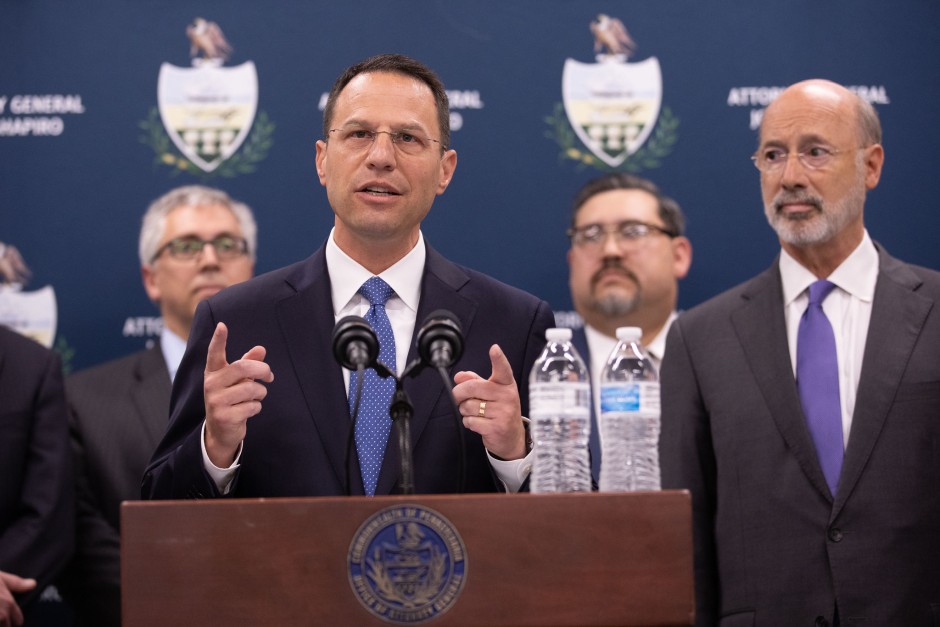Pennsylvania Governor Wants State To Join the Multi-State Internet Gaming Agreement

In a bid to expand the scope of online gaming in Pennsylvania, Gov. Josh Shapiro has signaled his intent to pursue the state’s entry into the Multi-State Internet Gaming Agreement (MSIGA). This agreement, which allows for shared online gaming pools between participating states, could bring significant economic benefits to Pennsylvania, enhancing both its online gambling revenue and player experiences.
The MSIGA was originally established in 2014 as a way for states to collaborate in offering online poker across state lines. By pooling players from multiple states, online poker platforms can sustain a larger and more vibrant player base, leading to bigger prize pools and more frequent games.
The agreement initially included Delaware and Nevada, with New Jersey joining in 2017 and Michigan in 2022. These states now share their online poker liquidity, allowing for a broader range of tournaments and competitions.
While the MSIGA currently focuses on online poker, it also opens the door for other types of online gaming to be included, such as casino-style games and potentially even sports betting, depending on future negotiations. The idea is that states working together can foster a more competitive and dynamic marketplace for online gaming, which benefits both players and the states involved.
Pennsylvania legalized online gaming in 2017 under the state’s comprehensive gambling expansion law. Since then, it has become one of the largest markets for iGaming in the United States, alongside New Jersey and Michigan. Currently, the state offers online poker, slots, and table games through various licensed platforms. However, Pennsylvania has not yet joined the MSIGA, which limits its online poker platforms to an in-state pool of players.
Online gaming has already proven to be a major revenue generator for the state. In the fiscal year 2022-2023, Pennsylvania’s iGaming market generated over $1.3 billion in revenue, significantly boosting the state’s tax revenues. With a population of more than 12.5 million, Pennsylvania’s entry into the MSIGA could further enhance this success by attracting more players, offering more gaming options, and allowing for larger prize pools.
Gov. Shapiro has been a proponent of initiatives that can bolster the state’s economy, and the gaming industry is no exception. By joining the MSIGA, Pennsylvania could tap into a broader online gaming network, allowing its residents to compete against players from other states. This, in turn, would likely increase online poker participation and overall revenues.
While the Governor’s office has not provided a specific timeline for joining the MSIGA, Shapiro’s administration has reportedly been in discussions with gaming regulators and stakeholders about the potential benefits. The state’s Gaming Control Board would need to work through various legal and regulatory hurdles before Pennsylvania could officially join the agreement, but early indications suggest there is considerable interest.
Joining the MSIGA could bring several key benefits to Pennsylvania. For one, the ability to pool players with other states would likely lead to an increase in online poker revenue. Larger player pools mean more robust tournaments and higher-stakes games, attracting both casual players and professionals. Additionally, a more competitive online poker environment could generate greater tax revenues, helping to fund state services and infrastructure projects.
However, there are challenges to consider. Regulatory differences between states, technical infrastructure, and the need for strong consumer protections are some of the hurdles that would need to be addressed. Pennsylvania’s gaming regulators would need to ensure that joining the agreement would not compromise the integrity of its gaming platforms or lead to any negative consequences for players.
Governor Shapiro’s push to join the Multi-State Internet Gaming Agreement represents a significant step in Pennsylvania’s evolving gaming landscape. If the state does move forward with this initiative, it could solidify its place as a key player in the national online gaming market.
- Other news categories:
- SlotsUp's news





